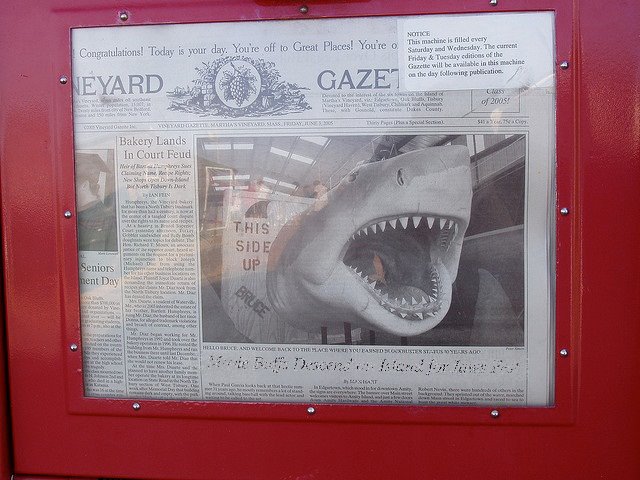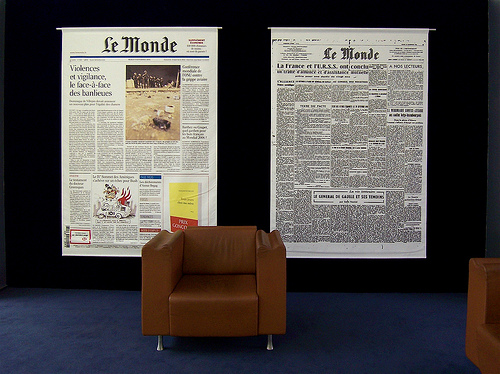*EJO Student Contribution
 A vast amount of information appears on the Internet each day.
A vast amount of information appears on the Internet each day.
As a consequence, online news consumers suffer from “infobesity,” defined as the tendency for people to forget what they’ve seen or read online. For this reason, David McCandless invented a new “visual science of information,” as described in an article published on the website of the French magazine Les Inrocks. McCandless, who summed up his work in the book Datavision, created a graphic system which enables news consumers to memorize information using a compilation of forms and colors, eliminating the “erasing effect” of info overload.
McCandless is promoting datajournalism, the practice of extracting information from databases and presenting it in a simplified format, making it easier for news consumers to understand. As datajournalism is based on figures and graphs, it’s aimed at enabling readers to better comprehend in-depth articles, particularly when using a tablet computer. In such a context, datajournalism represents a possible solution for the future of news organizations and for the future of online news in general.
Datajournalism first surfaced in France via OWNI, a social media site launched by Nicolas Voisin in 2009. The website functions as a digital journalism laboratory, generating content for traditional media under creative common law. The French journalism laboratory’s greatest feature is that it operates without the help of advertising revenue.
OWNI is also considered an “augmented journalism website,” as it integrates interactive and participatory tools in order to supplement information. Roughly 40 percent of its content is generated by 1,000 bloggers, who augment their work with the help of journalists. OWNI is staffed by a mere 15 people, working in various capacities.
Critics complain that as datajournalism continues to include an increasing number of editorial layers (videos, computer graphics), it will become difficult for users to understand how the information was constructed. Yet OWNI was twice awarded best online news website in a non-English language by the Online News Association. At least one point is certain: datajournalism will be an interesting trend to follow as traditional modes of news-consuming continue to transform.
Justine Gay is a Masters student at Sciences Po Toulouse, where she studies journalism. She recently completed a Media Journalism course with EJO’s German Editor, Tina Bettels.
Tags: Datajournalism, Datavision, David McCandless, Erasing Effect, French Media, Infobesity, Information Overload, Les Inrocks, Nicolas Voisin, OWNI, Value-Added Journalism











































